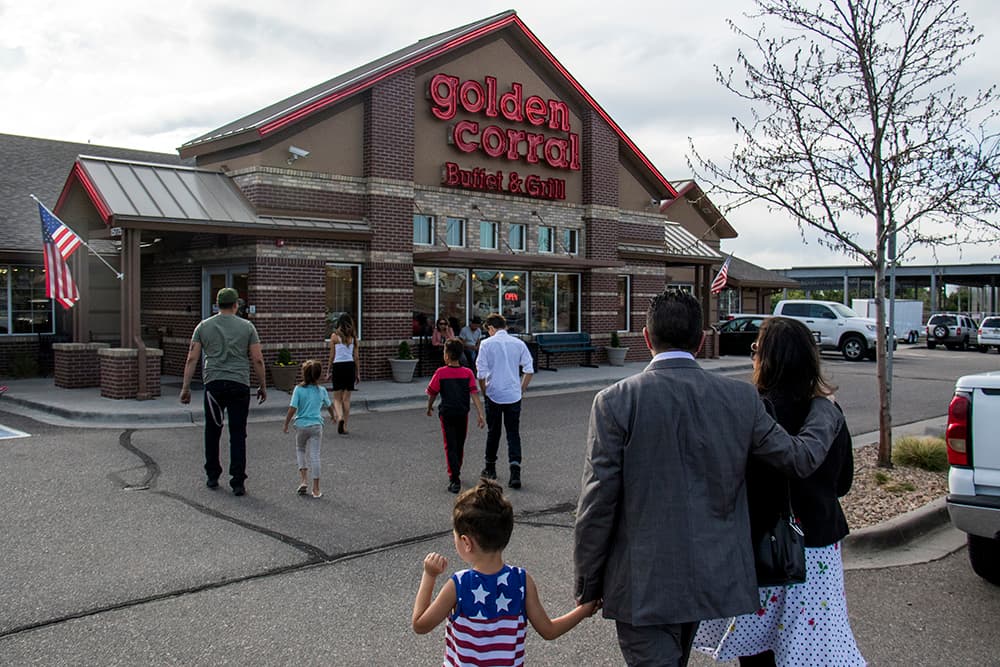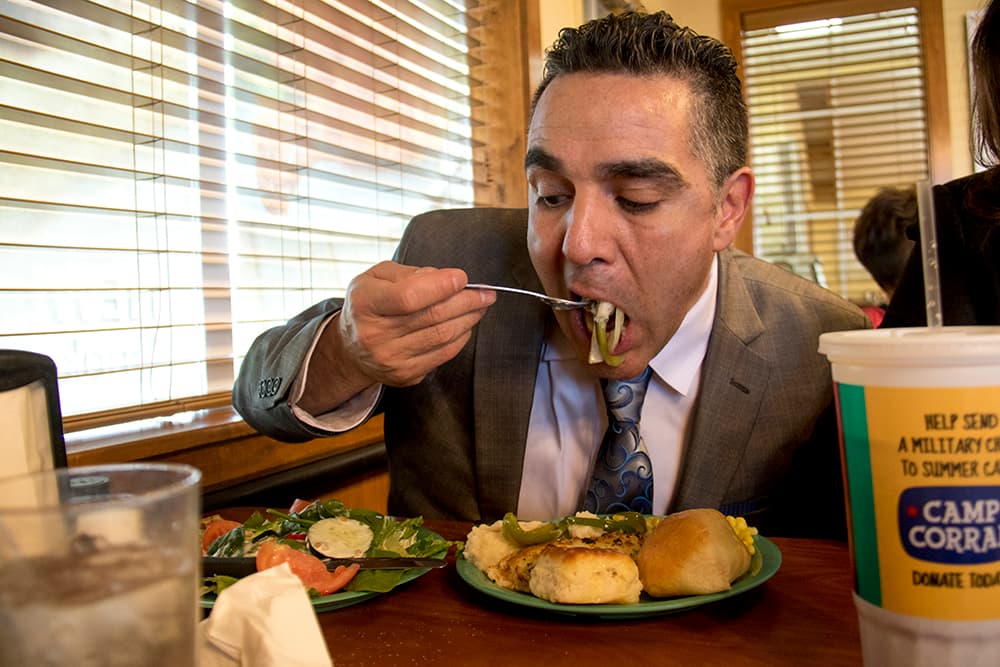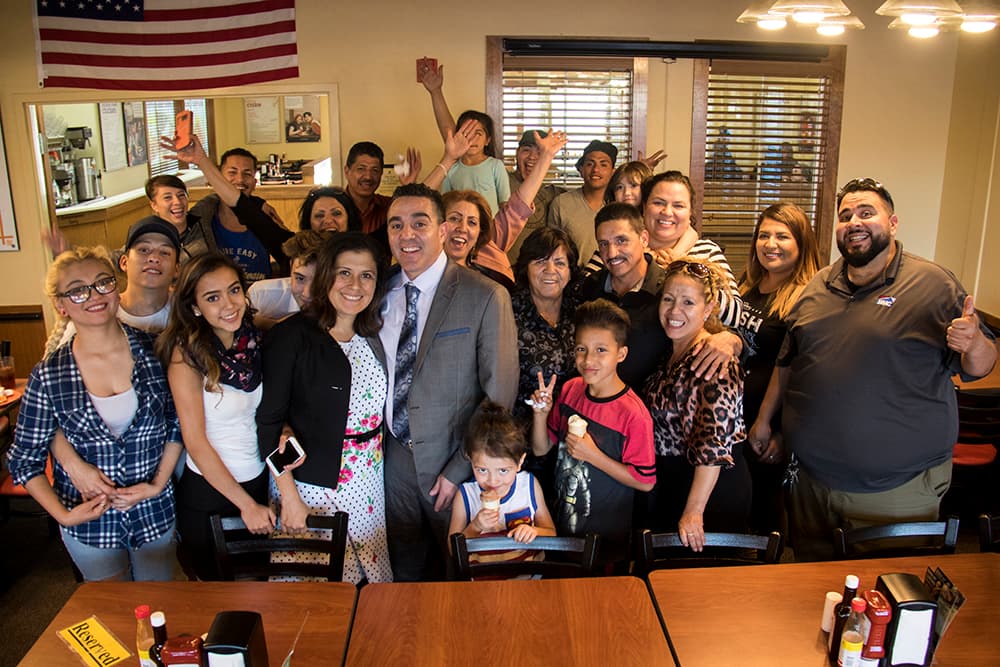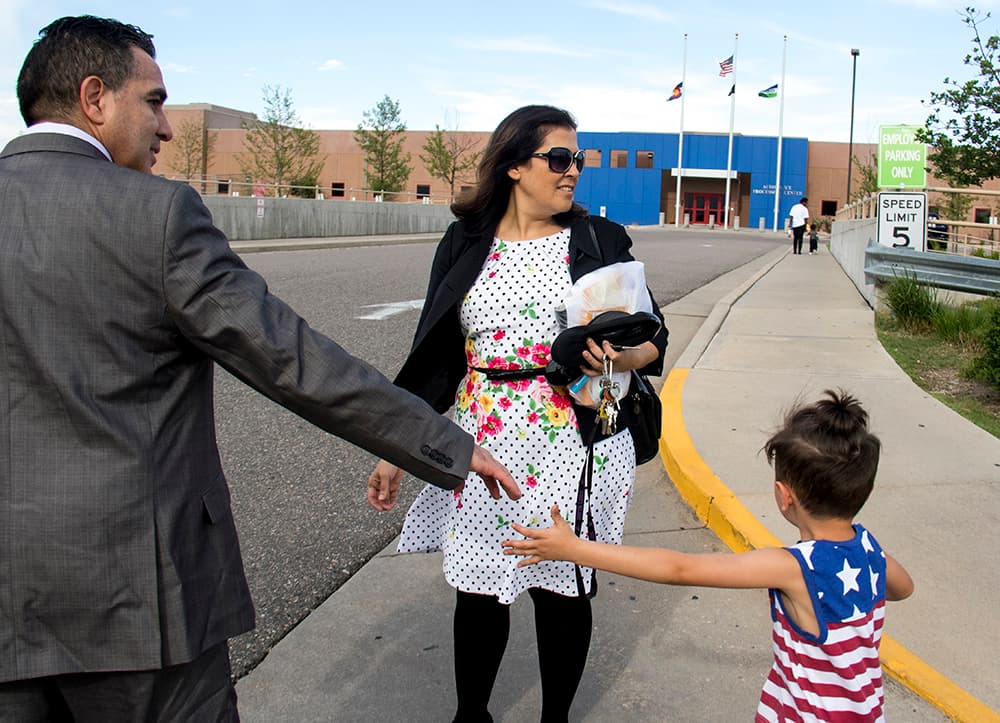
Isidro Quintana will get to stay in the United States, where he has lived since he was a child.
At a hearing Monday in the GEO private immigration detention facility in Aurora, immigration judge Steven Caley didn't even want to hear all the testimony from family members and fellow congregants that attorney Weldon Caldbeck had prepared.
"If ever a case called for cancelation of removal, this is it," Caley said, calling the positive mitigating factors in Quintana's case "overwhelming."
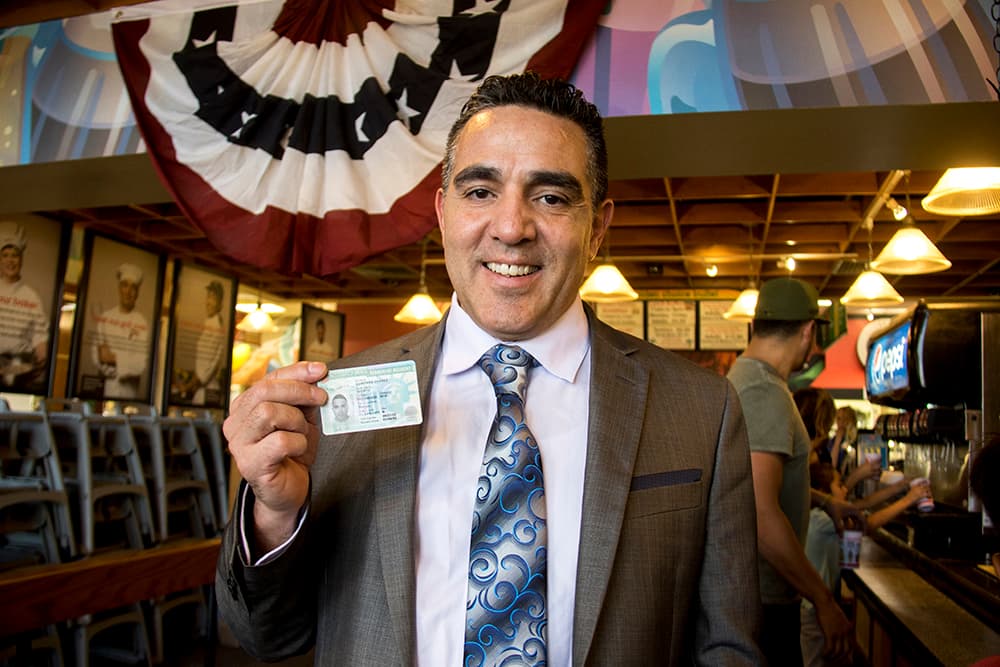
Quintana has been a legal permanent resident of the United States for decades. His parents brought him here from Mexico when he was a small child, and the family was granted legal status in the amnesty enacted by President Ronald Reagan. Many of his siblings and all of his children are U.S. citizens.
Late last year, Quintana was stopped by immigration authorities on his way back into the country from a mission trip and family vacation to Costa Rica. He had been convicted back in 1996 of felony drug possession in New Mexico and successfully completed probation. The case was 20 years in the past, but when you're not a citizen, your status is always conditional. After months of uncertainty and several check-ins with Immigrations and Custom Enforcement, Quintana was taken into custody in early March as the government sought his deportation to Mexico, a country he barely remembers.
We looked at the issues involved in Quintana's case in detail earlier this year.
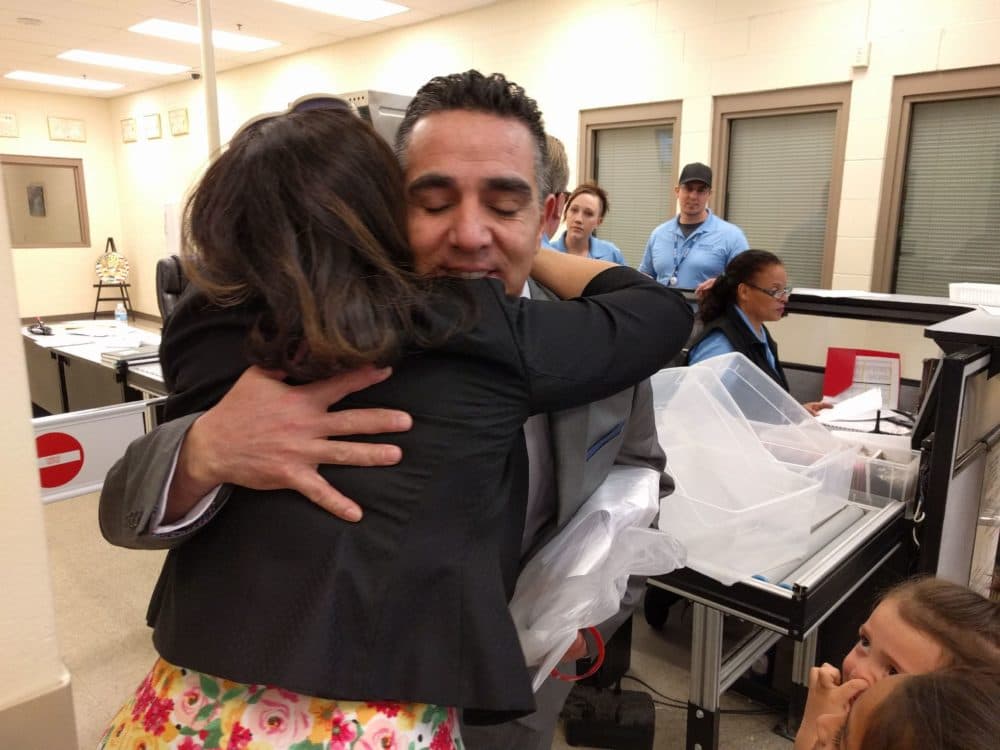
In the three months that Quintana has been in immigration detention, he has lost his business doing interior carpentry, and his four employees have lost their jobs. His wife, Erica Rodriguez, had to move out of their apartment with their teenage children and into her brother's one-bedroom apartment. She's been cleaning houses to make ends meet. They had been planning on buying a house, but now all their savings are gone.
The removal proceedings involved two issues: whether Quintana had lived in the United States for seven uninterrupted years, without a single visit out of the country prior to the offense that made him eligible for removal, and whether the life he has lived since makes him worthy of a second chance to stay here.
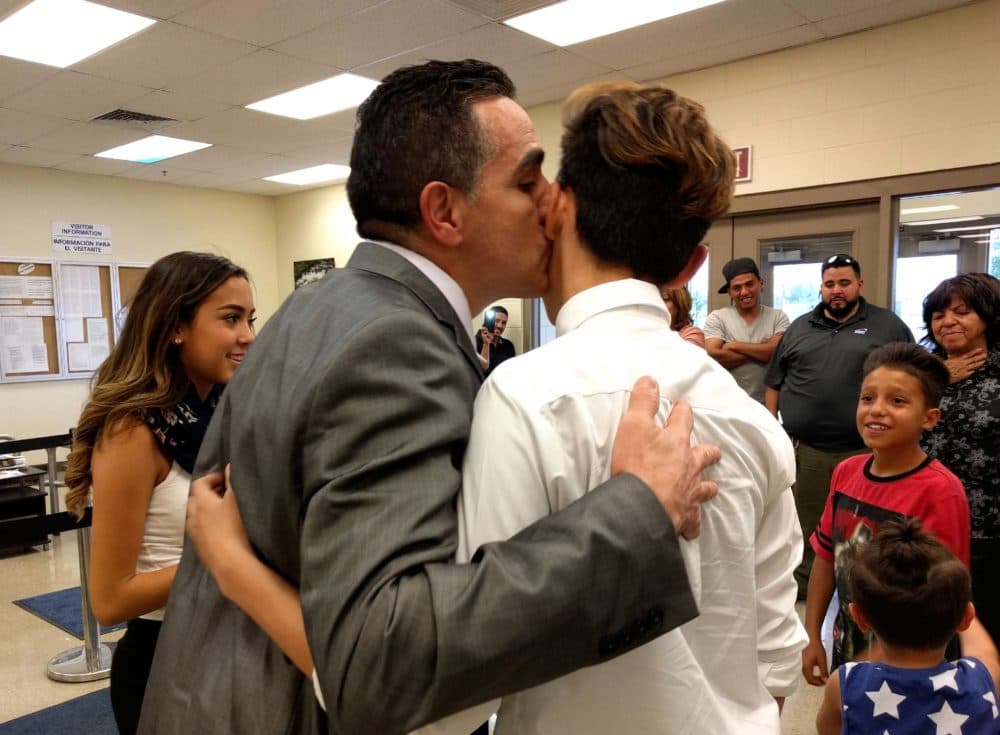
Quintana had to recount every job he's worked and every apartment he's lived in in Denver and Aurora. An attorney representing the government asked if he had leases from the early 1990s to establish his residency, if the home builder he'd worked for in 1993 is still around, if he'd ever visited Mexico, if his parents had ever visited Mexico, if his brothers had ever visited Mexico, if his ex-wife had ever visited Mexico, if his ex-wife had legal status in the United States, if his children speak Spanish.
And the attorney brought up Quintana's other encounters with the law, a domestic violence arrest in 1990 during his first marriage and other incidents that reveal a temper even though they didn't result in convictions. There was the brawl in front of a pizza place, the time he pummeled a man who drunkenly called his teenage sister-in-law a whore, the time he trespassed in the house of a friend who bought a car from him but didn't pay.
Quintana grew up watching his father beat his mother, and he says he acted out that pattern in his first marriage. He described the violence as mutual and said he didn't realize then how much harm he was doing to his family. That marriage ended in divorce after his arrest on drug charges. He has been with his second wife for 18 years and raised their own two children, along with her son from her first marriage.
Quintana, controlled but clearly emotional, looked like a man might look if every rash decision and mistake of the last 30 years were put into a file folder and plopped on a desk and from that file folder might spring his banishment.
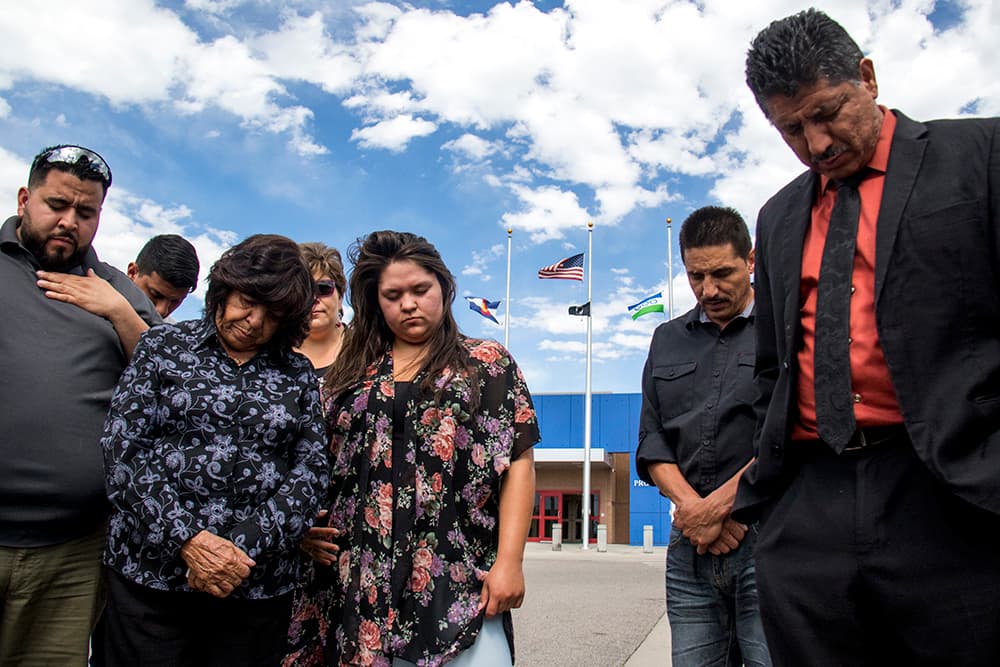
The drugs ... he was having a lot of money problems and was struggling to get on his feet, Quintana said. A friend knew someone who knew someone, and he drove a car to Mexico, turned it over to the contact for a few days and then drove it back to the U.S. with 46 pounds of marijuana stashed inside it. It was the first and last time he did something like that, he said.
Against that history, there is the stable second marriage, the U.S. citizen children who depend on his financial support and describe an involved and loving father, the active participation in his church, the Seventh Day Adventist Reform Movement, where he was elected by his fellow congregants to serve as a deacon. There are the meals cooked for homeless youth, the blankets distributed to people sleeping under bridges, the cancer patients and nursing home residents with whom he prays, and the fellow detainees at GEO to whom he preaches. Living by the principles of the church, he does not drink or smoke or do drugs, and he follows a vegetarian diet.
Pastor Joel Barnedo delayed moving to New York City for a new appointment within the church so that he could testify on Quintana's behalf. Asked if he ever knew Quintana to get angry, Barnedo described Quintana as a peacemaker in the church.
"You have to get a read on someone if they're going to be a deacon," Barnedo said. "A man who mistreats his wife, who mistreats his children, cannot be a deacon."
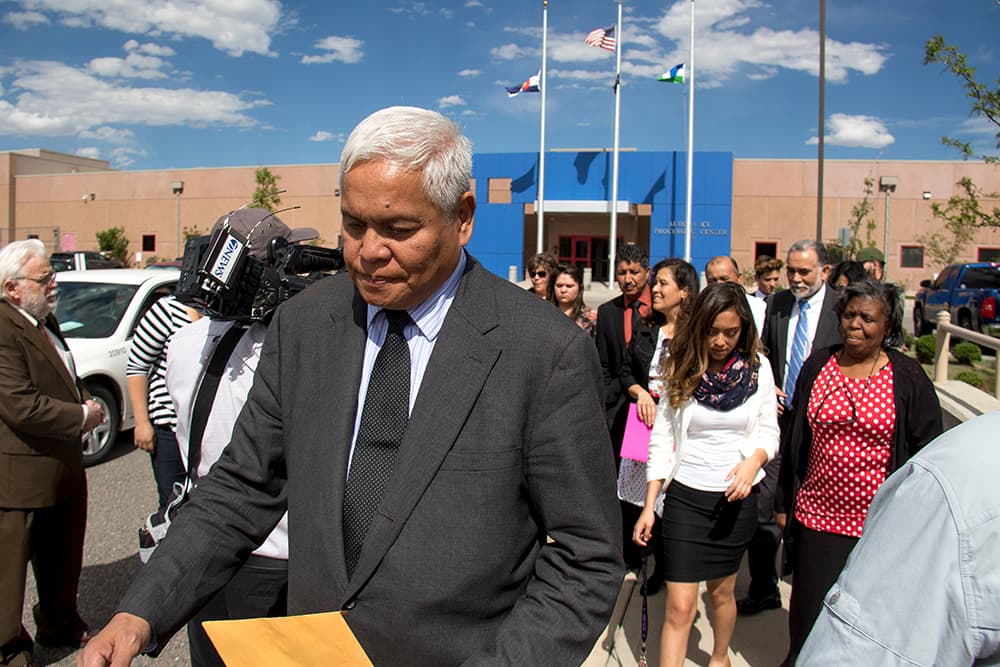
Quintana told the judge he did not know if his wife would join him in Mexico if he were deported. Her family is here as well, and he wouldn't want his children to grow up in Mexico.
"I know what the United States means. It means freedom," he said, dressed in the orange t-shirt and black pants that GEO detainees wear. "They wouldn't have that in Mexico, and it's not safe."
As the judge gave his decision that allows Quintana to stay in the United States and maintain his residency, Martha Knight, secretary at the church, whispered, "Praise God, praise God."
The guard inside the courtroom passed a box of tissues to the 20 family members and fellow church members gathered to support Quintana, and then as court adjourned, his children, still red-eyed from crying, rushed to embrace him.
Caldbeck said it is unusual for an immigration judge to reach a decision so quickly. Caldbeck kept calling witnesses beyond what was strictly necessary because he wanted to establish a record in case the government appeals Quintana's reprieve.
"I think he saw that this was a fine man," Caldbeck said.
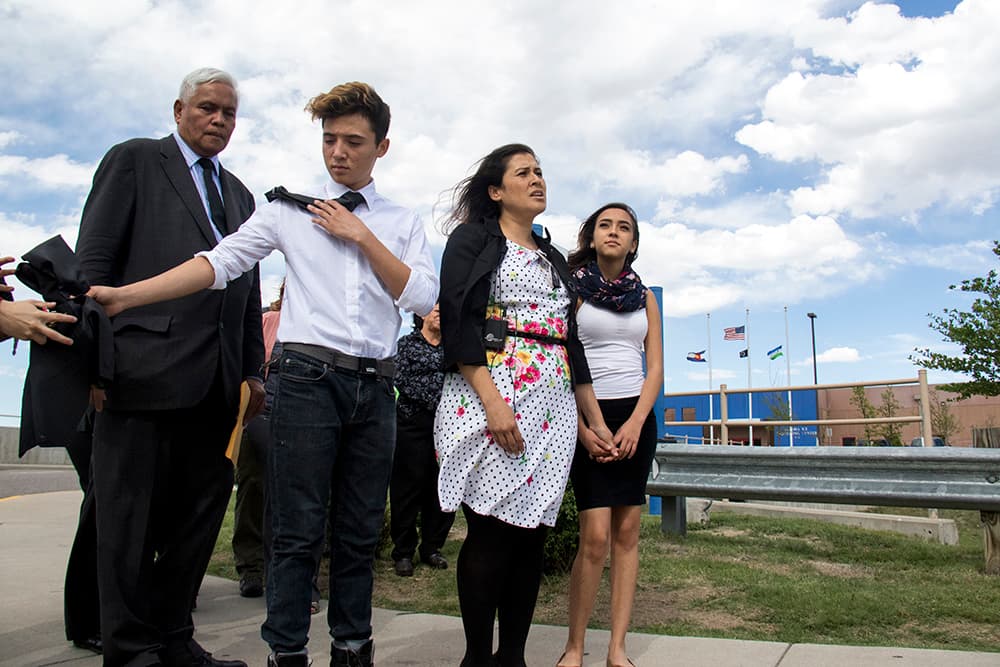
Erica Rodriguez said the family has a long road ahead to rebuild what has been lost, but she has faith.
"It will be very difficult," she said. "We have to start over. We have to rebuild. But it's going to be possible. It will be challenging, but it will be nothing compared to what we have been through."
Rodriguez said she had been praying, but she could not allow herself much hope.
"With everything that is going on these days, it's hard to expect a positive outcome," she said.
Outside GEO, the family and church members gathered on the sidewalk to pray.
"The Lord has performed a miracle here today and set our brother free, just as he set him free from sin," Pastor Neptali Acevedo said.
A white sedan with two GEO employees pulled up alongside them.
"Please get off our property," the man in the driver's seat ordered. "Get off our property right now."
